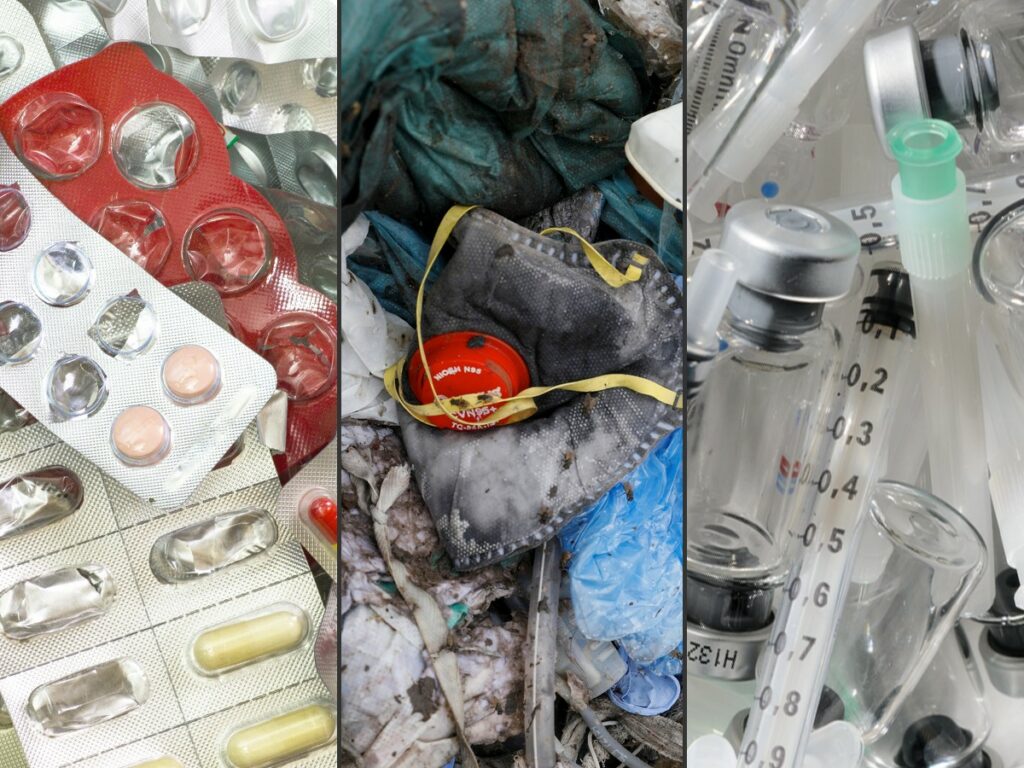There are 4 major types of medical waste: hazardous, infectious, radioactive, and sharps. Each type has different disposal needs, but many require a medical waste disposal company for handling. All are considered dangerous and there can be long-term consequences if handled improperly.
Below are the 4 major types of medical waste.
Hazardous Medical Waste
Hazardous medical waste has characteristics that make them too dangerous to be mixed with other types of waste. Exposure to hazardous materials can cause difficulty breathing, skin and eye irritation, and other ailments. Examples of hazardous waste include:
- Metals that can rust
- Corrosives
- Pesticides and herbicides
- Chemicals and paints
- Fluorescent light bulbs
- Batteries with mercury
- Poisons
- Medications
Infectious Medical Waste
Infectious medical waste is any sort of waste that is capable of producing or spreading infection. This type of waste should be handled with extreme caution and only those by specifically trained. Examples of infectious waste include:
- Personal protective equipment (PPE)
- IV Tubing
- Wound dressings
- Sharps
- Body tissue or organs
Radioactive Medical Waste
Radioactive medical waste is one of the most dangerous types of medical waste if handled improperly. Exposure to it can lead to many severe long-term ailments. Much of radioactive medical waste produced in the healthcare field comes from radiation therapy. Examples of radioactive medical waste include:
- Sharps used for radiation
- Clothing & utensils used for radiation
- Any disposable material that comes into contact with radioactive rays
Sharps
Sharps are defined as any medical utensil that can puncture human or animal skin. Sharps are used frequently in healthcare settings, especially for vaccination, drawing blood, and inserting an IV. They have their own containers specially made for them for disposal. Examples include:
- Needles
- Syringes
- Scalpels
- Lancets
- Autoinjectors
Despite their varying disposal needs, all 4 are categorized as medical waste and should be handled by a medical waste disposal provider. Knowing these types of medical waste will help you properly segregate and handle it prior to pick up. It will also save you time, money, and headaches.



